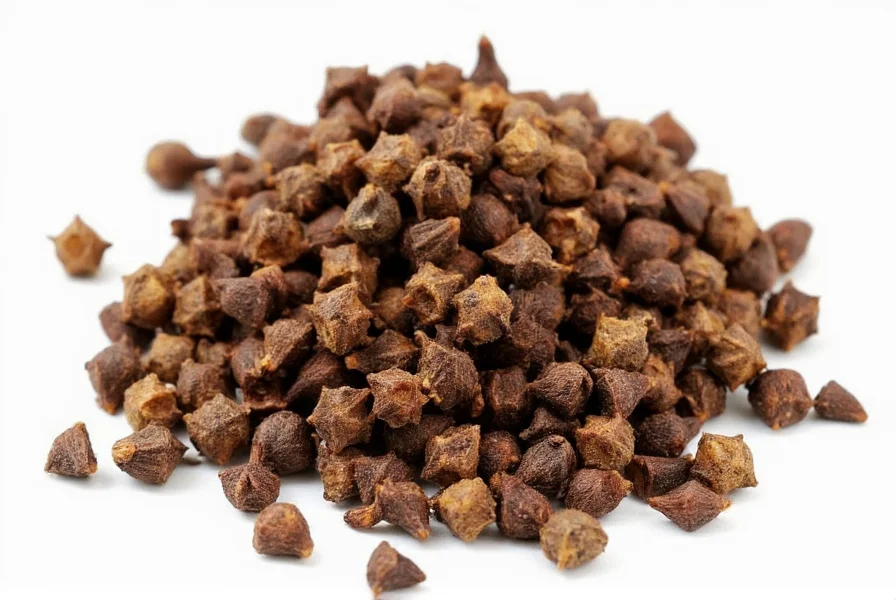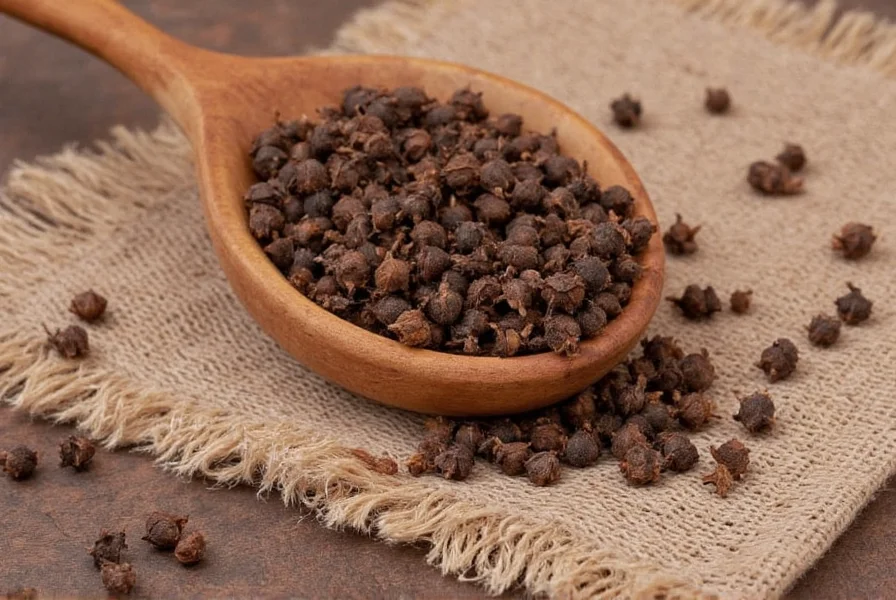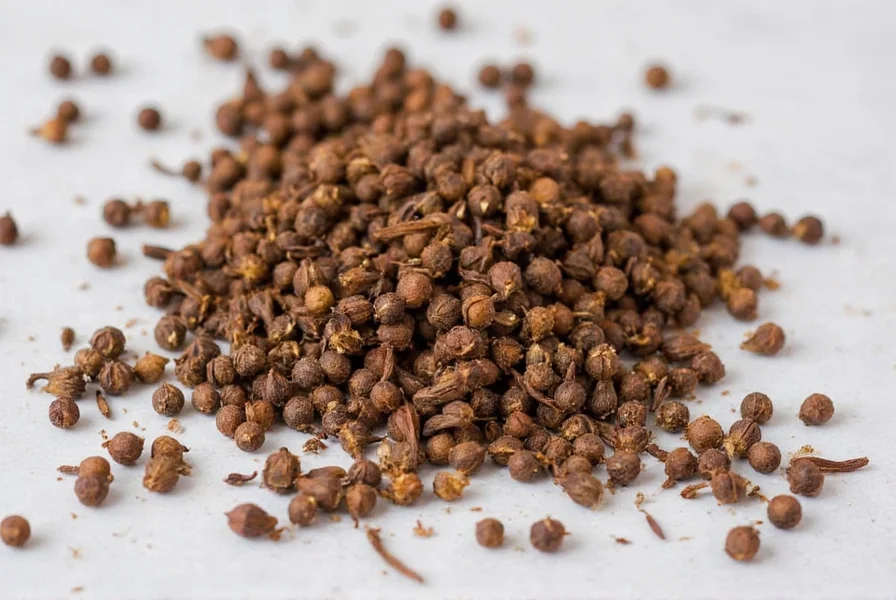Cloves have been treasured in global cuisines for centuries, valued not only for their distinctive flavor but also for their remarkable versatility. Understanding how to properly select, use, and store this potent spice can transform your cooking experience and expand your culinary repertoire significantly.
What Exactly Are Cloves?
Botanically classified as Syzygium aromaticum, cloves develop as unopened flower buds on evergreen trees that can grow up to 40 feet tall. These small, nail-shaped spices measure approximately 1-2 cm in length and feature a tapered stem with a bulbous head containing the essential oils responsible for their powerful aroma.
The name "clove" derives from the Latin word clavus, meaning "nail," which perfectly describes their physical appearance. Historically, cloves were so valuable that they sparked international trade wars and were worth more than their weight in gold during certain periods of history.
Culinary Applications of Clove Spice
Cloves deliver a complex flavor profile that's simultaneously sweet, warm, and slightly astringent. Their potency means they should be used judiciously—typically just one or two whole cloves can flavor an entire dish. Understanding how to use cloves in cooking properly prevents overwhelming other flavors.
| Cuisine Type | Common Clove Applications | Recommended Quantity |
|---|---|---|
| Indian | Curry blends, rice dishes, meat marinades | 4-6 whole cloves per recipe |
| Middle Eastern | Tagines, spice blends, pickling solutions | 3-5 whole cloves per recipe |
| European | Ham glazes, mulled wines, baked goods | 2-4 whole cloves per recipe |
| Asian | Five-spice powder, braised dishes, soups | 3-5 whole cloves per recipe |
When working with whole cloves, consider these techniques:
- Studding: Press whole cloves into onions or hams for slow infusion of flavor
- Infusing: Add to liquids like broths, wines, or milk for custards
- Grinding: Use freshly ground cloves for more intense flavor in spice blends
Many home cooks wonder about the difference between whole cloves and ground cloves. Whole cloves maintain their potency for up to two years when properly stored, while ground cloves lose their volatile oils more quickly, typically within six months. Whole cloves also provide more controlled flavor distribution in dishes.
Health Benefits and Considerations
Research indicates several potential health benefits associated with cloves, primarily due to their eugenol content, which comprises 70-90% of clove essential oil. Studies suggest cloves may support oral health and provide antioxidant properties. However, it's important to note that health benefits of clove spice should be considered within normal culinary usage amounts.
Consuming cloves in typical food quantities is generally safe for most people. However, excessive consumption (more than 2-3 grams daily) may cause mouth irritation or interact with blood-thinning medications. Clove oil should never be consumed undiluted.
Selecting and Storing Cloves Properly
When selecting cloves, look for these quality indicators:
- Brown color with reddish undertones (avoid pale or yellowish cloves)
- Intact buds with no signs of cracking
- Strong aroma when crushed slightly
- Heavy weight for their size (indicates oil content)
The best way to store dried cloves involves keeping them in airtight containers away from light, heat, and moisture. Properly stored whole cloves maintain peak quality for 1-2 years, while ground cloves remain potent for 6-12 months. To test if your cloves have lost potency, crush one between your fingers—if you can't detect a strong aroma, it's time to replace them.

Clove Substitutes for Various Culinary Needs
When you need clove spice substitutes for baking or other applications, consider these alternatives based on your specific recipe needs:
- Allspice: Provides similar warm notes (use 3/4 teaspoon allspice for 1 teaspoon cloves)
- Nutmeg: Offers complementary warmth (use half the amount of cloves)
- Cinnamon: Works well in sweet applications (use double the amount of cloves)
- Pumpkin pie spice: Contains cloves plus other complementary spices
Remember that no substitute perfectly replicates clove's unique flavor profile. The what does clove taste like in recipes question has no simple answer—it contributes both sweet and savory elements simultaneously, making it irreplaceable in certain traditional dishes.
Frequently Asked Questions
How long do cloves last in the pantry before losing potency?
Whole cloves maintain their flavor potency for 1-2 years when stored properly in an airtight container away from light and moisture. Ground cloves typically remain potent for 6-12 months. To test freshness, crush a clove between your fingers—if the aroma is weak or absent, it's time to replace them.
Can I substitute ground cloves for whole cloves in recipes?
Yes, but with careful measurement. Generally, 1/2 teaspoon of ground cloves equals 6-8 whole cloves. Ground cloves distribute flavor more evenly but can become bitter if overused. When substituting, start with less than you think you need and adjust to taste, as ground cloves are more concentrated.
Why do some recipes call for removing whole cloves before serving?
Whole cloves remain hard even after prolonged cooking and can damage teeth if accidentally bitten. Their intense flavor also becomes overpowering when consumed directly. Recipes typically use whole cloves for infusion during cooking, then remove them before serving to maintain the desired flavor profile without the physical hazard.
Are there any safety concerns with using cloves in cooking?
When used in typical culinary amounts (1-4 cloves per recipe), cloves are safe for most people. However, excessive consumption may cause mouth irritation or interact with blood-thinning medications. Clove oil should never be consumed undiluted. People with bleeding disorders should consult their healthcare provider about clove consumption.
What's the best way to grind cloves for maximum flavor?
For optimal flavor extraction, toast whole cloves in a dry skillet for 1-2 minutes until fragrant, then cool before grinding. Use a dedicated spice grinder or mortar and pestle for best results. Grinding cloves just before use preserves their volatile oils, which begin dissipating immediately after grinding. Store any extra ground cloves in an airtight container away from light.












 浙公网安备
33010002000092号
浙公网安备
33010002000092号 浙B2-20120091-4
浙B2-20120091-4